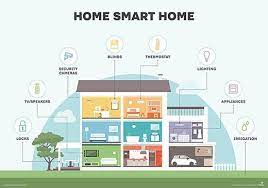Innovation Strategies of Smart Building Solutions Companies
Overview of Industry Innovation
Smart building solutions companies are at the forefront of integrating advanced technology into building management, significantly enhancing operational efficiency and sustainability. These companies innovate through research, technology integration, and customer collaboration to create highly optimized and responsive building environments.
Core Areas of Innovation
Integration of IoT and AI
Smart building solutions companies focus heavily on integrating Internet of Things (IoT) and Artificial Intelligence (AI) technologies to improve building operations. These technologies allow for real-time monitoring and control of various building systems such as lighting, heating, ventilation, and air conditioning (HVAC). By using AI algorithms, these systems learn from ongoing data on building usage patterns to optimize energy consumption, achieving efficiency gains of up to 25%.
Development of Sustainable Technologies
Sustainability is a critical focus area, with innovations aimed at reducing buildings’ carbon footprints. For example, smart building solutions companies develop systems that incorporate renewable energy sources like solar panels into their designs. These systems can reduce reliance on non-renewable energy by up to 40%, significantly lowering operational costs and environmental impact.
Financial and Operational Impact of Innovations
Cost Reduction and Operational Efficiency
Implementing smart building technologies can initially cost between $10,000 and $500,000, depending on the building’s size and the systems installed. However, these systems frequently cut down annual energy and maintenance costs by about 20%, offering a return on investment within 3 to 6 years. Additionally, the automation of routine tasks frees up staff time, allowing them to focus on more critical operations.
Enhancements in Building Lifespan and Maintenance
Smart building technologies not only extend the lifespan of building infrastructure by preventing overuse and facilitating timely maintenance but also enhance the overall quality of building operations. The durability of these systems typically surpasses traditional building management systems by about 5 to 10 years due to advanced materials and better design.
Technological Advancements and Quality Improvements
Real-Time Data Utilization
Smart building solutions companies employ systems that process and analyze data in real-time, enabling immediate adjustments to enhance efficiency and occupant comfort. This capability allows for a responsive environment that adapts to changes in weather, occupancy, and other variables, ensuring optimal operational conditions at all times.
High Standards of Material Quality
These companies use materials that meet stringent quality standards required for advanced technology applications, ensuring reliability and safety. Materials used in smart buildings are often rated for higher performance, which includes longer lifecycles and better resistance to environmental stresses.
Conclusion
Smart building solutions companies are driving significant advancements in the real estate sector by innovating in technology integration, sustainability, and operational efficiency. Their efforts not only lead to smarter, more adaptive building environments but also contribute to broader goals of energy conservation and sustainability. As they continue to push the boundaries of what’s possible in building management, the potential for future innovations remains vast.
